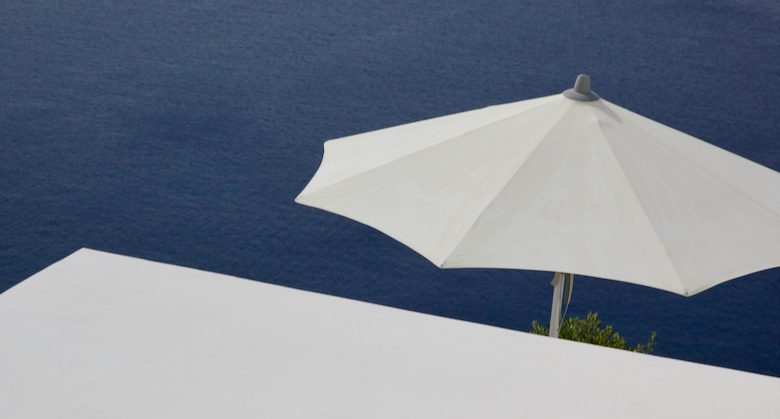THE PHILOSOPHY OF DE-CLUTTERING – PART 3

Emotional attachments to possessions
We are all brought up to treasure and preserve those special moments in our lives. The first rose I received, which I carefully pressed in a hardcover book. That autumn leave that I picked during a memorable trip, the ticket stubs for my travels, that quirky souvenir etc. However, I had outgrown these habits a long time ago and made a conscious decision not to get entangled with the past, and not to increase the clutter at home. The remnants I have of my earlier life are not evidenced anywhere except in my own personal memory.
People tend to form unhealthy obsessions by giving too much importance to items. It is to the point that they almost give life to the things they possess. A mother was asked to get rid of her fleet of childhood dolls and stuffed toys, and she ended up in tears because she loved them too much – and refused to throw them away even though these old items were causing health problems for her and her newborn baby. There are many other examples which you can recollect from your own life. Multiply that by the rest of the possessions that the entire family collects. These objects themselves have no value, but granting them excess attention and importance gives them such power that they enslave the owner.
We have also found that those who tend to hoard items, especially excessive mementos, are usually those who cannot let go of the past, physically, mentally and emotionally. They are the ones who harbour grudges, refuse to forgive and keep recalling the same old unpleasant incidents. Ten years later, they will still be talking about the same event involving the same person, without an iota of forgiveness, understanding or empathy. They will always blame the past for their failures in life, whether social or financial. As their age advances, we also noticed a common theme. The ones who tend to hoard too many items from the past are those who grow old looking bitter, sour and disappointed. It makes no difference if they live in a hut or a mansion. They are stuck in their time warp, refuse to let go and their self development is stunted.
This is the frightening effect of excessive attachment to possessions, when you let the clutches of dunia claw into your heart. This leads to heedlessness of Allah, and the true purpose in life. It does not matter if the person has performed multiple umrahs – despite their rituals, their hearts are plugged in to dunia and not to Allah.
These are the increasing symptoms of heedlessness and lack of direction in life.
Indeed, We have made that which is on the earth adornment for it that We may test them [as to] which of them is best in deed. (Al Kahf 18:7)
If we look at how we treat our possessions, to the point that we are imprisoned by them and spend more time on them than we do on Allah, then have we passed or failed the test?
Whatever personal memories you have should be preserved in your heart. If you need a series of travel trophies and framed objects to remember them by, that event was never that important to begin with.
Imagine if all your photos, memorabilia, old boarding passes etc were all destroyed by a fire today, will you forget all the memories they represented? On the contrary, only the unimportant memories will fade away. The other items, the toys, the posters, the magazines, the novelty t-shirt – all belonged in a different time and place and should not accompany you for the rest of your journey in life. We should not be continuously looking back at our dunia trophies, but looking forward towards achieving our purpose in life.
It does not mean that we should burn all our family photos or things which represented certain milestones in life. However, everything must have a purpose. What is the point of keeping old love letters, especially if they are not from the person you eventually married? What is the point of storing that old t-shirt you bought while on holiday? Textbooks you will never read again? Clothes given as gifts from years ago, which you never wore but were too selfish to give away? Duplicate copies of the same book? Things you have outgrown, physically, mentally and emotionally? Islam needs leaders, mature people, people of calibre, thinkers, and not those whose heads are stuck in the clouds reliving their second, third and fourth childhoods!
Further, in Islam, your rizq is not calculated by what you own, but what you utilize. If a dinner has three courses and you only eat two courses, the balance course is not your rizq, even if you paid for the entire dinner. If you own one hundred shirts and only wear ten, your rizq is in the ten shirts and not in the balance ninety. This also applies to money. If you have a million dollars in your account and only spend one thousand dollars and hoard the rest, you rizq is in only in that one thousand dollars. Hence whatever you store in your home but never use, is not considered your rizq at all.
This explains the paradox on why people who are rich on paper, are actually in poverty from the Islamic perspective. They hoard, are stingy and therefore are poor in the eyes of Islam. They hoard BECAUSE they are stingy and attached to their worldly goods, causing multiple spiritual diseases to wreak havoc in their hearts. Their houses may be overflowing with expensive artefacts, but they are the ultimate losers in Islam – they have abused Allah’s bounties to them and have broken their trust to Allah by not sharing their possessions with the deserving.
This is why parting from your items is a good way of paring down that stinginess and unhealthy emotional attachment to possessions. Disassociate yourself from subconsciously giving your belongings life or capacity to give happiness. Learn how to categorise things in their proper places and importance. Getting rid of your Class of 2001 alumni jumper does not erase your academic achievements. Throwing away a door gift you received during a dinner does not mean that you did not enjoy the food. You do not need a badge or memento for every place you’ve been to and everything you have done.
Also discard the negative baggage. Why keep the photos of those who harmed you in life, or the photos of the person you hate? We know someone who was jealous of another person, and kept a electronic folder of the person’s photos because she hated that other person so much that she would refer to the folder to keep fuelling her hate. This is extreme sickness, and it does not matter that the photos were not kept in hard copy form.
Even if you want to keep someone in your memory, what of that aspect are you remembering? Rasulullah SAW’s love for his first wife, Khadijah RA, never diminished after she passed away. He used to cry when he recalled her. But what did he cry about? Is it the way we cry over someone, while looking at old vacation photos and remember the chocolate we had with that person? On the contrary, he required no such memento to remind him of her. What he remembered was her goodness, her love of Allah and her staunch support for him.
If you love someone for the sake of Allah, you remember their goodness and do not require a suitcase full of visual prompters. You will not need to look at their photos to remember them.
Even if you inherited something from them, the thing you inherit does not contain that person’s soul. For example, my late mother (rahmatullahi alaiha) left behind some jewellery. They were precious to me, but never something I would wear because the designs were not my taste or size. Yet, I was too attached to her memory to let go of them. So they just gathered dust for almost 20 years. Eventually, I decided that I should use them for a good cause. I found a jeweller who could recycle the gold and precious stones into a design more suitable for me. This eradicated the guilt of throwing away my precious inheritance. About a third of the jewellery was donated in her name for the path of Allah – this is my way of investing part of what she left behind for a place in her hereafter. However, at no point, before or after, did my emotions or sense of loss at her passing ever change. I had made the mistake of thinking that the loss of the gold can alter my emotions, but this was not true at all. I have never look backed or regretted since. People may think it sounds heartless, but I think it is a greater mercy to her to utilise what she left behind instead of storing it in a cupboard with no benefit to anyone.
When it comes to precious people or moments, we do not need intermediary objects to remember them by. Unless that person left something truly of importance, such as a letter, where the value is in the words of the writer, and not the price of the paper or ink. If there was ever anything that you inherit from someone, ask yourself if it is capable of being used or converted into sadaqah jari’ah for that person’s benefit. This will put your family heirlooms in perspective. How many people are falsely attached to their inherited goods – a broken telescope, a grandfather’s clock that has not worked since 1980? Do we really need to hand these down generation to generation, creating a burden for the inheritors? Unless it had proper antique value, something useless doesn’t become precious just because the original owner passed away – this is another deception of Shaitan to enslave us to keepsakes.
When the Muhajireen were asked to abandon all their property and evacuate from Mekah, imagine if they behaved the way we do – getting upset over leaving our children’s sports medals behind, or worse, packing it along with them! Would Islam have flourished if they had the same diseases of accumulation that we have today?
All these occur when we have no concept of akhirah in our hearts. We are so focused on our crazy dramas and emotions that our purpose of life has become upside down. This is a frightening symptom of our diseased hearts and is one of the avenues in which we can destroy our souls. In obeying our desires and Shaitan to keep everything, we end up losing our happiness in dunia and also akhirah.




